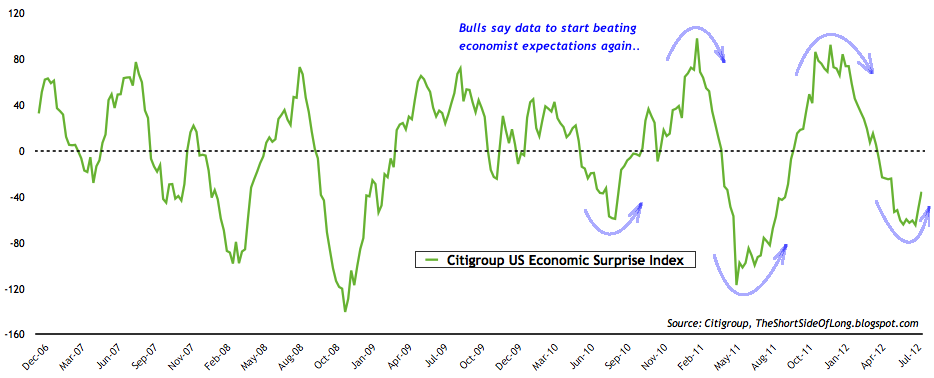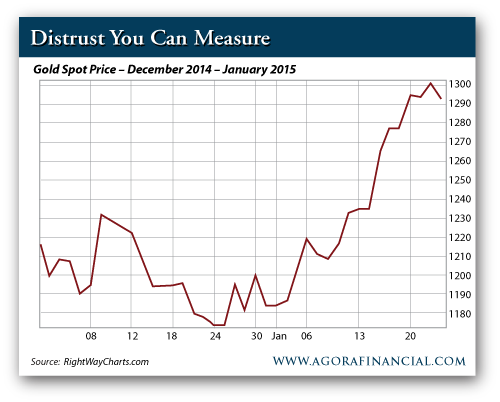Prescient’ economic indicator is bullish
Post on: 16 Март, 2015 No Comment

MarkHulbert
CHAPEL HILL, N.C. (MarketWatch) — A double-dip recession?
More like double-dip sloppy thinking.
No, I’m not saying that all of those advisers who believe another recession is imminent are automatically guilty of sloppy thinking. But many of them are: When the facts on which they base their argument end up changing, they simply look elsewhere to find other facts that support their conclusion.
Consider the summer of 2010, the last time that forecasts of a double-dip recession reached a crescendo. The argument that was most advanced in support of this forecast, at least among the advisers I track, was based on the Weekly Leading Indicator (WLI) of the Economic Cycle Research Institute (ECRI).
How to react to global crises
For investors, theres no way to escape global crises but there are ways to protect your portfolio from them. Veteran money managers at a MarketWatch Investing Insights event share their strategies for preparing for the next black swan.
One of the advisers I monitor wrote that the ECRI’s WLI was “the most prescient statistical guide to the health of the U.S. economy.” Another wrote that the ECRI’s WLI has “an almost ‘holy allegiance’.”
At the time this indicator was winning all these accolades from the bearish advisers, the WLI’s six-month growth rate — the particular metric that supposedly had such predictive abilities — was significantly negative. And, sure enough, the economy did slow down — though an actual recession was avoided.
Well, guess what?
The ECRI WLI today is 6.7% higher than where it stood over the last six months. If this “prescient” indicator that has an “almost holy allegiance” did not lead to an outright recession when its growth rate was much lower, then why should it now?
The answer, of course, is that it shouldn’t.
In other words, the ECRI’s WLI is an inconvenient truth for those advisers who believe we either are already in, or will soon enter, another recession.

So what do many of these advisers do?
Easy — they simply ignore the indicator.
To be sure, these advisers may turn out to be right, of course. But I get the unmistakable impression when reading their arguments that their reasoning has nothing to do with their believing there will be a recession. And this impression becomes confirmed when they don’t change their mind, even when the data underlying their arguments change.
Of course, there are plenty of knee-jerk advisers on the other side of the recession argument, Pollyannas who would insist that all is rosy, even on the deck of a sinking Titanic.
To be scientific in our approach to the markets, we need to be ruthlessly empirical in following the lead of the data, in whatever direction it might take us, regardless of our preconceived notions.
That’s a tall order, I know.
But the alternative is to lead one’s investment life in denial, divorced from reality. And that can’t be a good investment strategy.














